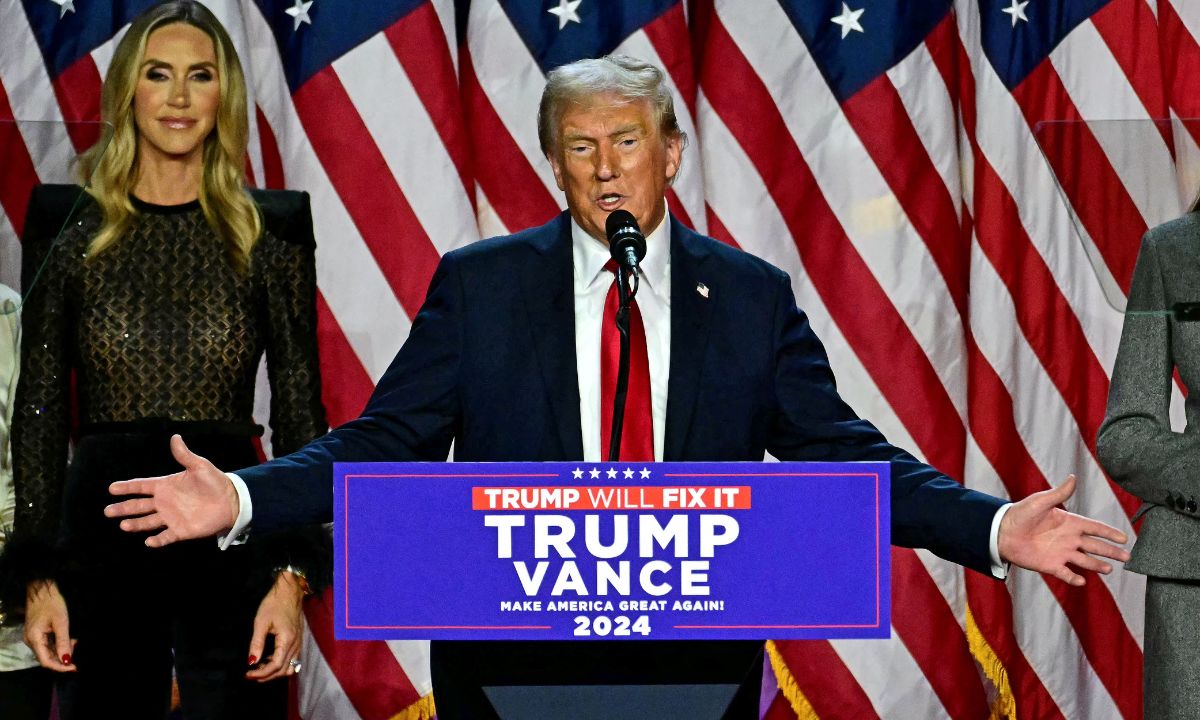School Choice May Get Its Biggest Moment Yet
Advocates ready their plans for a new administration they believe will be friendly to vouchers, charters and other schooling options

Get stories like this delivered straight to your inbox. Sign up for The 74 Newsletter
WASHINGTON — During Donald Trump’s first term as president, he was reluctant to speak boldly about school choice.
That’s according to Kellyanne Conway, an aide to the president back then, and one of his former campaign managers. “He would say ‘Aren’t we the ones who say it [education] is local? Why would the president of the United States bigfoot all that?’”
Expect that reticence to be a thing of the past, Conway told the audience at an event last week devoted to promoting the benefits of school choice — from sweeping education savings accounts in the style of programs in West Virginia and Arizona to charter schools and microschools. On the campaign trail, Trump already has been vocal about his embrace of parental choice. “We want federal education dollars to follow the student, rather than propping up a bloated and radical bureaucracy in Washington, D.C.,” he said at a rally in Wisconsin last month.
(To be sure, Trump did issue an executive order near the end of his first term offering states the opportunity to use federal money to create school choice programs. When I looked into it a few years ago, I couldn’t find any state that had taken him up on the offer.)
Conway urged participants at the post-Election Day gathering to speak a certain way in their advocacy to lawmakers going forward. “Lead with solutions not problems. The problems can be the second part of the sentence, or maybe the second paragraph.” The panelists — including the founder of a group of charter schools for students with autism in Arizona, the leader of a private school for boys in Alabama and the head of a foundation that supports microschools — were all winners of the Yass Prize, fueled by billionaire Jeff Yass and run by the Center for Education Reform.
She also urged the crowd not to make school choice about teachers unions, “which is fun to do, especially this week but it doesn’t educate another child.” (The National Education Association, the nation’s largest labor union, generally has opposed private school vouchers and has been celebrating the defeat of school choice measures at the ballot box in three states. “The decisive defeat of vouchers on the ballot across multiple states speaks loudly and clearly: The public knows vouchers harm students and does not want them in any form,” NEA President Becky Pringle said in a statement.)
Lawmakers who need convincing aren’t holding out just because of union pressure, Conway said. In Texas, for instance, rural lawmakers worried about the effect of vouchers on their schools have repeatedly voted down or torpedoed plans in that state that would allow parents to use public money for private school tuition. Republican Gov. Greg Abbott helped elect enough new members in place of those rural holdouts, however, that school choice may soon be a reality in his state.
The school choice event at the Ronald Reagan Building in D.C. was notable for the range of people it featured, including parents and pastors, people who are white, Black and Latino, and several Democrats, including Colorado Gov. Jared Polis and state Sen. Anthony Hardy Williams of Pennsylvania. Some of the speakers told stories about opening their own charter schools and private schools. They urged the president-elect to take action on choice, including allowing federal subsidies for school meals for children in low-income families to follow those kids to private schools or other settings outside public schools.
In Congress, with Republicans taking hold of the Senate and expected to retain control of the House, lawmakers already have proposed legislation that has, until now, mostly been a nonstarter. Sen. Bill Cassidy of Louisiana, who is likely to become chair of the committee that oversees education in his chamber, introduced a bill this session that would give families and corporations tax credits if they contribute to groups that give scholarships to students to attend private or parochial schools. It would target students whose families earn no more than 300 percent of the area median gross income. Cassidy’s wife, Laura, runs a charter school for children with dyslexia in Baton Rouge.
“I think that there’s going to be a real opportunity to promote innovation in school choice,” Cassidy said. “There is great promise in this administration, and I am looking forward to working with them.”
This story about school choice was produced by The Hechinger Report, a nonprofit, independent news organization focused on inequality and innovation in education. Sign up for the Hechinger newsletter.
Get stories like these delivered straight to your inbox. Sign up for The 74 Newsletter

;)